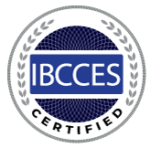
Hiring, retention, diversity, equity, and inclusion strategies are keeping business owners, executives, and HR leaders up at night. At the foundation of these challenges are people who are both current employees and those who are unemployed and still looking for work. For this reason, neurodiversity is gaining greater awareness, and there are many reasons to pay attention and engage.
Autistic individuals, those with dyslexia, ADHD, anxiety and other cognitive differences make up the neurodiverse population. Neurodivergent adults have an unemployment rate of 30 to 40%, which is eight times higher than the average for the general population. In a CNBC Article on Neurodiversity, Hiren Shukla, leader of EY’s Global and Americas Neuro-Diverse Center of Excellence, says that this is a huge pool of untapped talent that can bring creativity and complex problem-solving skills to a company and has the ability to “reimagine the world.”
However, current workplace hiring processes and accommodations can make it difficult for these individuals to find and maintain employment. Statistically, your workforce is already neurodiverse, with 1 in 10 adults having an attention disorder, 1 in 6 people having a sensory need, and an estimated 13+ million adults living without a diagnosis. That means employees are at risk of not being optimally managed, coached, and/or supported to reach their maximum potential. Deploying a strategy for recruitment, placement, onboarding, and management of neurodivergent employees can contribute greatly to the success of your organization.

According to a program by Hewlett-Packard Enterprise (HPE) done at Australia’s Department of Human Services (DHS), an organization with a neurodiverse team can be 30% more productive than others. Businesses and organizations should also institute systems that help to identify and take advantage of their neurodivergent employees’ unique abilities while also making necessary improvements to the workplace environment so that new skill sets are identified, talent is maintained, and management efficiency is improved. Industry leaders such as JPMorgan Chase, Microsoft, SAP, Hilton, and EY are just a few of the organizations that have specific programs in place to interview, hire, and onboard neurodiverse workers, but that number must grow and filter across small, medium, and large businesses.
The Certified Neurodiverse Workplace (CNW) program from IBCCES offers organizational training and certification, supported by a comprehensive review and report with recommendations and partnership-level support to help your organization adapt to the needs of your existing and future employees. Through raising awareness and educating leaders and employees alike, the common bias and misinformation related to work skills, communication, talent potential, age, gender, and even race, can be dispelled.
 CNW Benefits:
CNW Benefits:
- Ensure current DEI initiatives are inclusive and intersectional
- More effective teams and cross-functional communication
- Attract and retain talent
- Enhanced leadership and organizational effectiveness
- Empowered staff and management
- Improved staff engagement and morale
- Community engagement and recognition
For more than 20 years, IBCCES has been the leader in cognitive disorder training and certification for healthcare, education, and corporate professionals around the globe. IBCCES provides evidence-based training and certification programs created in conjunction with clinical experts and neurodivergent individuals in order to provide professionals that manage and work with neurodivergent people with a better understanding of what these disorders are, industry best practices, varied perspectives, and the latest research.
Check out this link for more information on the IBCCES Certified Neurodiverse Workplace Program.
Interested In Learning How To Become A Certified Neurodiverse Workplace?
Please fill out the form below to get connected with a team member for more information
